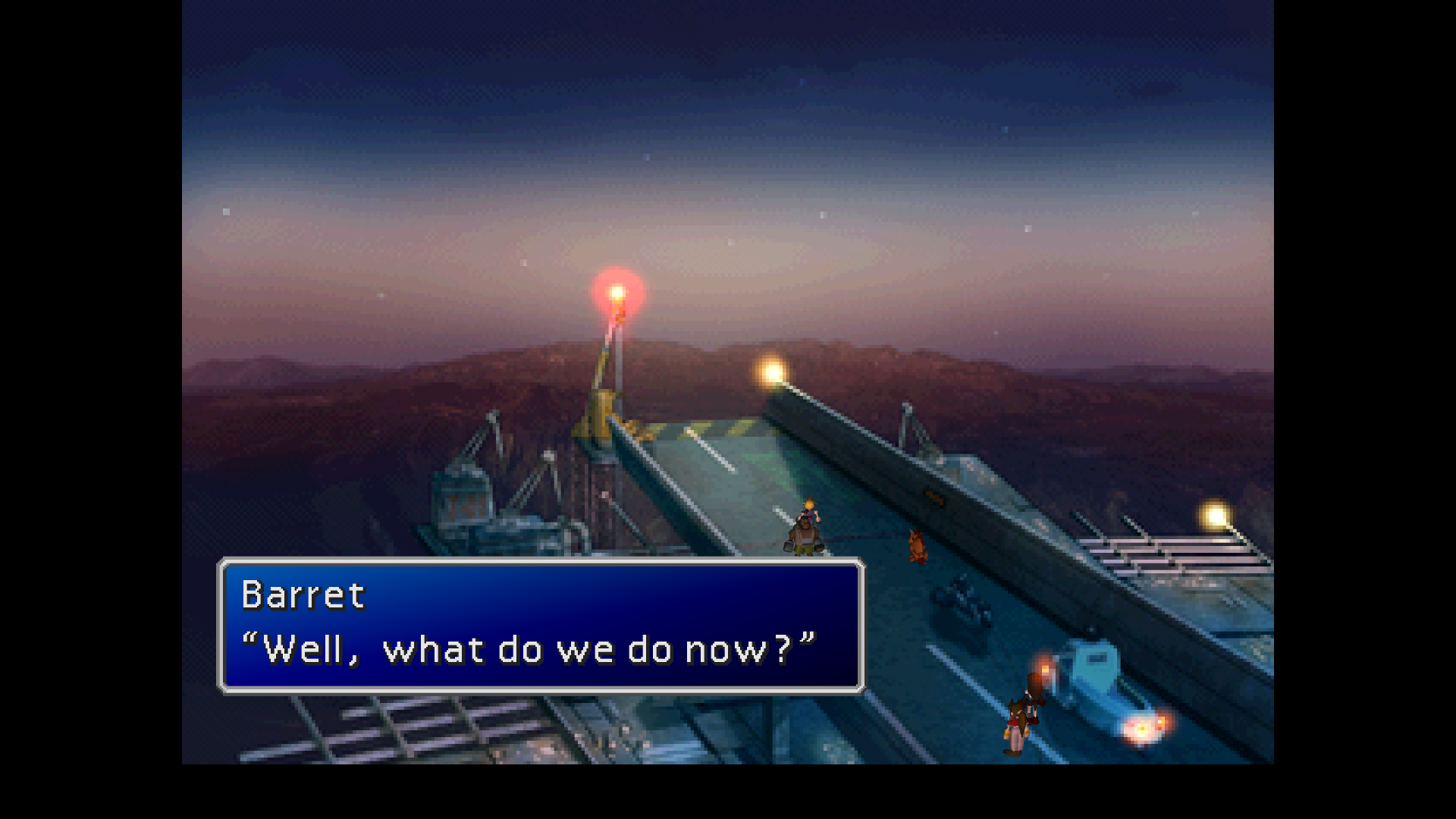Over the weekend I decided to put my FFVII Rebirth playthrough on pause and finally commit to making my way through the original Final Fantasy VII for the first time. I’ve just completed the Midgar section, and it’s left me with some thoughts now that I have a point of comparison with which to judge FFVII Remake Intergrade.
The most obvious observation is that I finished Midgar in a fraction of the time it takes to navigate through Remake Intergrade. The remake deeply fleshes out this first section of the game, adding a bevy of side quests and minigames (to the point where you would be forgiven for thinking it was a Like a Dragon game in disguise instead). What genuinely surprised me was how some of those side quests get recontextualized as attempts to keep you rooted in place.
This extension isn’t always a bad thing; I think the remake did the plate drop aftermath much better, treating it as the abject tragedy it is rather than letting us breeze through it so we can get to Aerith’s rescue like the original does, for example. In other instances – creating Cloud’s dress, the sewer section, our second visit to Wall Market – I’m glad for the brevity of the original.
I much prefer the characterization in the remake games to the writing and localization of the original, but I think that’s probably the second most obvious/least surprising observation I could make. My understanding is that there were localization problems with FFVII, many of which persist to this day. I also think it’s obvious that you’re going to be able to do a better job at fleshing characters out when you have several hundred hours and gigabytes with which to do so, compared to the relatively-minuscule three-whole-CDs’-worth of data the original FFVII took up.
That said, I think it would be a mistake to say the writing in the original is bad. The original still gives you more than enough to sink your teeth into even as it paints in broader strokes; Barret is still a doting father whose love for his daughter is the catalyst for his desire to save the planet from Shinra; Tifa and Aerith are still unbelievably witty and never pass up an opportunity to rib Cloud; Jessie, Biggs and Wedge are still dedicated revolutionaries grappling with the ramifications of their radical commitments; President Shinra and his idiotic board of directors are no less believable as caricatures of evil businesspeople (and honestly, given everything happening today, not even caricatures) as they are with a few more context-providing scenes.
What I feel overwhelmingly in the original, though, that I don’t feel very much in the remake games, is the presence of an editor. The way certain scenes are composed, what is and isn’t shown, the decisions surrounding which camera angle to use at any given moment—everything in FFVII feels like someone had a hand in making those decisions. Game development, of course, always is this; under very few circumstances do we get truly emergent behaviors, even in games where the way scenes are edited or the way the narrative is directed is, we might say, more laissez-faire. But if modern big-ass game design is all about hiding the presence of those hands, it feels like that wasn’t nearly as much of a concern in the original. And to be honest, I love it. I’ve been craving it. (And of course it doesn’t take going back to a game from 1997 to find novel experiences like this; they’re all over the place in indie spaces and being made right this second.)
Between Final Fantasy VII and Final Fantasy XIII, Square experimented with a variety of experiences in open- and closed-world game design and the different storytelling affordances that gave them. As they moved more completely into the 3D game space, they – like everyone else – took on a set of assumptions about how these things should look and feel and the ways in which they can tell stories. AAA game design has in some ways become homogenized, leaving little room for creativity in shot composition and pushing for ever greater fidelity and photorealism. It’s in this context that I find the disdain for FFXIII‘s closed-world design so fascinating; I see it as another game that utilized its limitations to tell a story in an intentional and interesting way.
